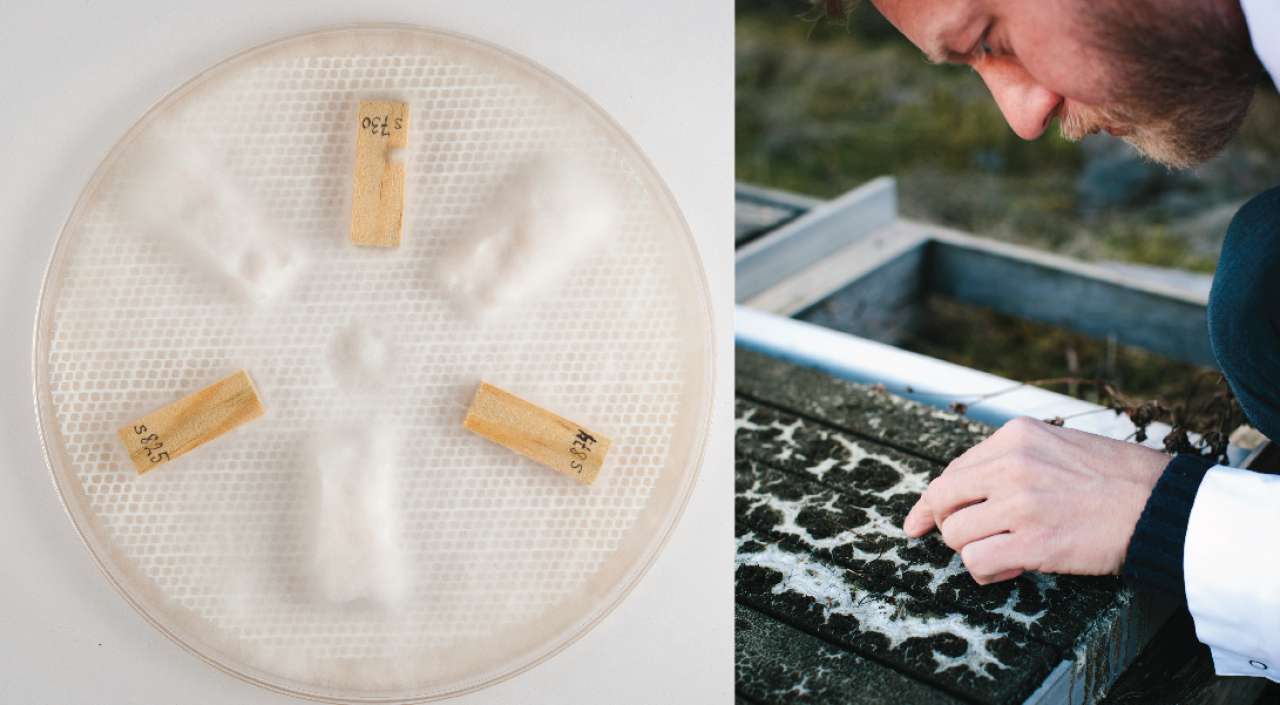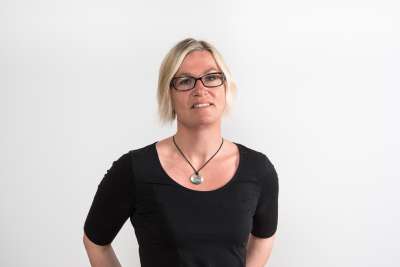Biological testing and durability

Laboratory and field testing of the biological durability of wood. Fotos: A. Treu (left), T. Ekström (right)
Fungal colonization on wood surfaces
We analyse growth of fungi (i.e. mould- and blue-stain fungi) on coated and non-coated wood substrates following different standards:
- EN927-3, natural weathering test for exterior wood coating systems
- BS 3900-G6, fungal resistance of coatings performed in laboratory conditions using mixed spore suspension from selected fungal species.
- EN152, determining effectiveness of preservative treatments against blue stain under laboratory conditions.
- EN 15457, tests the efficacy of film preservatives in a coating against fungi under laboratory conditions
Resistance of wood against brown- and white-rot fungi
We test the natural durability of wood and the effectiveness of protective treatments against wood-decaying fungi using standardized and non-standardized methods:
- EN113, exposes wood to decay fungi in Kolle flasks with malt-agar medium for 16 weeks
- Miniblock test, a non-standardized test with small samples to give a rapid indication on the protective effects of new wood treatments.
- Radial growth test, a non-standardized test of the fungal growth inhibition by chemical agents
Field testing
Service life of wood products depends on biotic and abiotic factors and can be predicted using exposure test sites with different test setups:
- EN252, determines the effect of wood protective systems by exposing wood samples to soil contact over five years
- ENV 12037, the Lap-joint tests that tests the effect of wood protective systems in above-ground conditions
- Different non-standardized tests in soil contact or above ground adapted to specific customers needs

Contacts


Lone Ross
Director
-
Division of Forest and Forest Resources
(+47) 911 97 268 lone.ross@nibio.no Office Location: Ås H8
Contacts


Lone Ross
Director
-
Division of Forest and Forest Resources
(+47) 911 97 268 lone.ross@nibio.no Office Location: Ås H8
